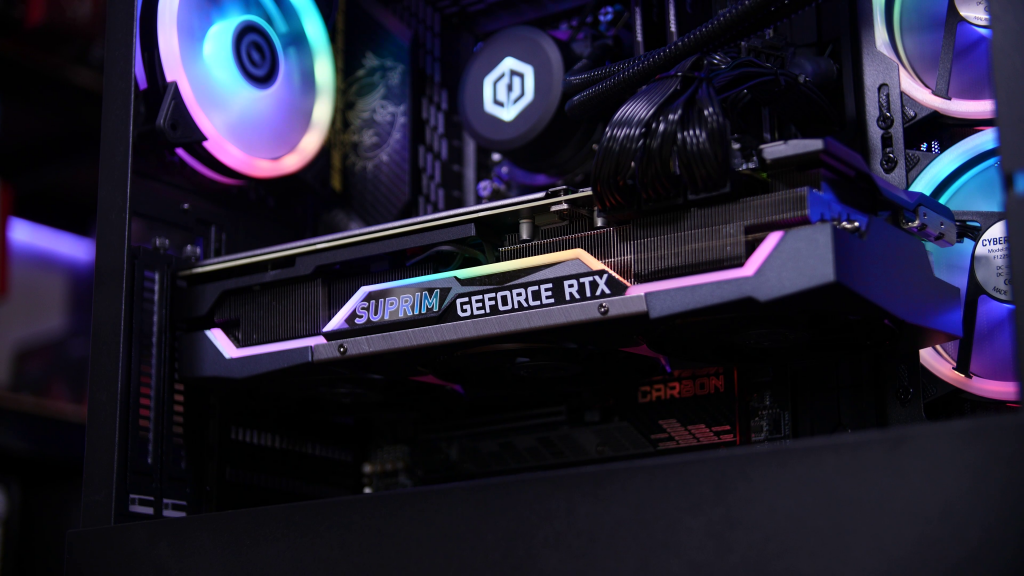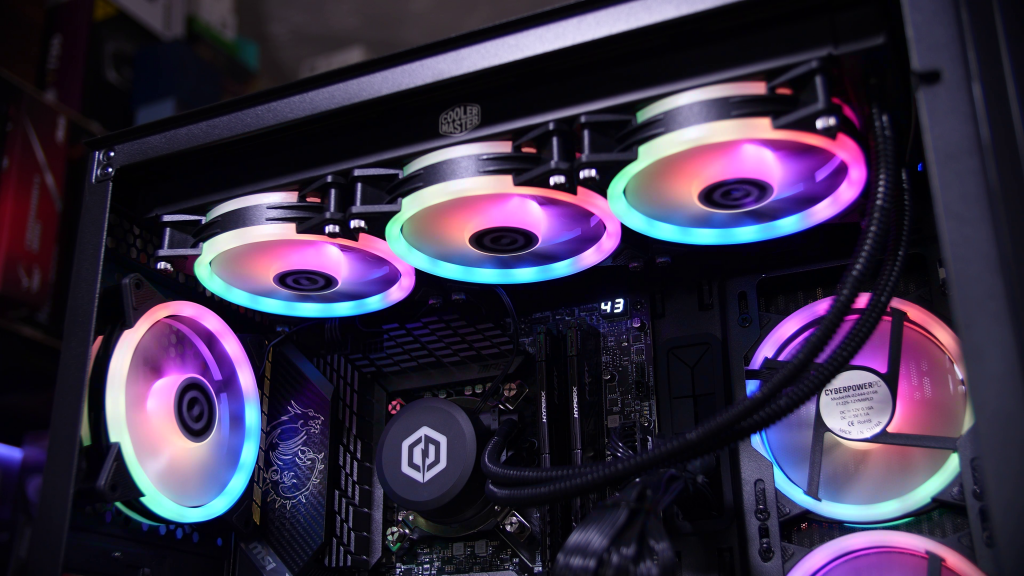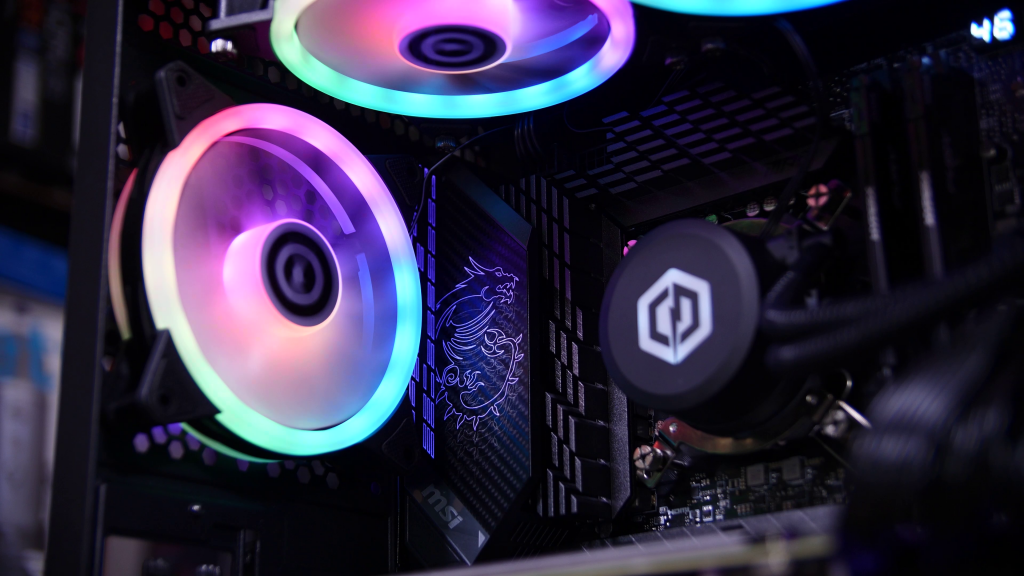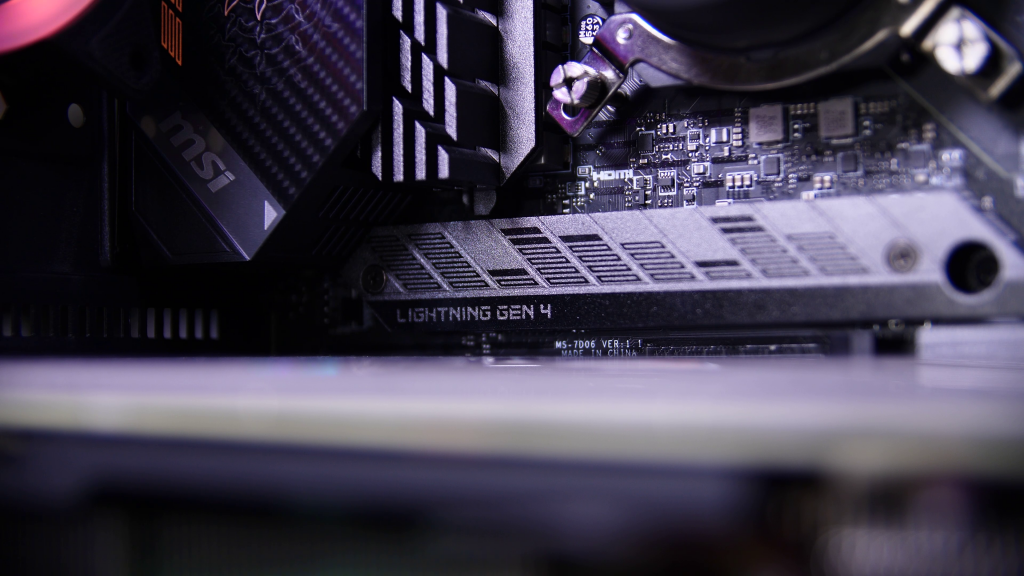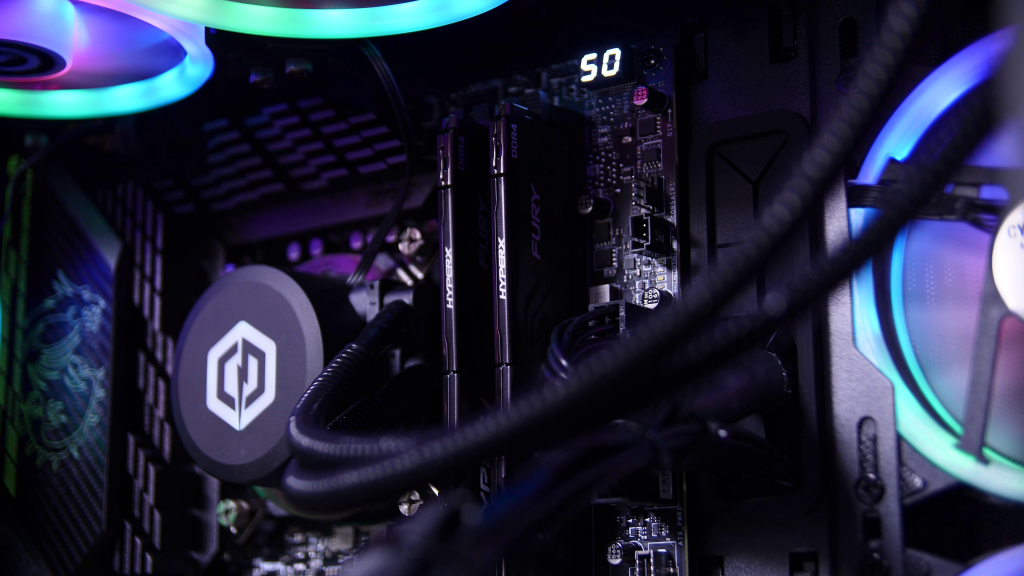Cyberpower Infinity X119 GT Gaming PC Review
First thing’s first, if you haven’t already seen it, go check out my full review of the star of the show, the Intel i9-11900K. It’s one you don’t want to miss.
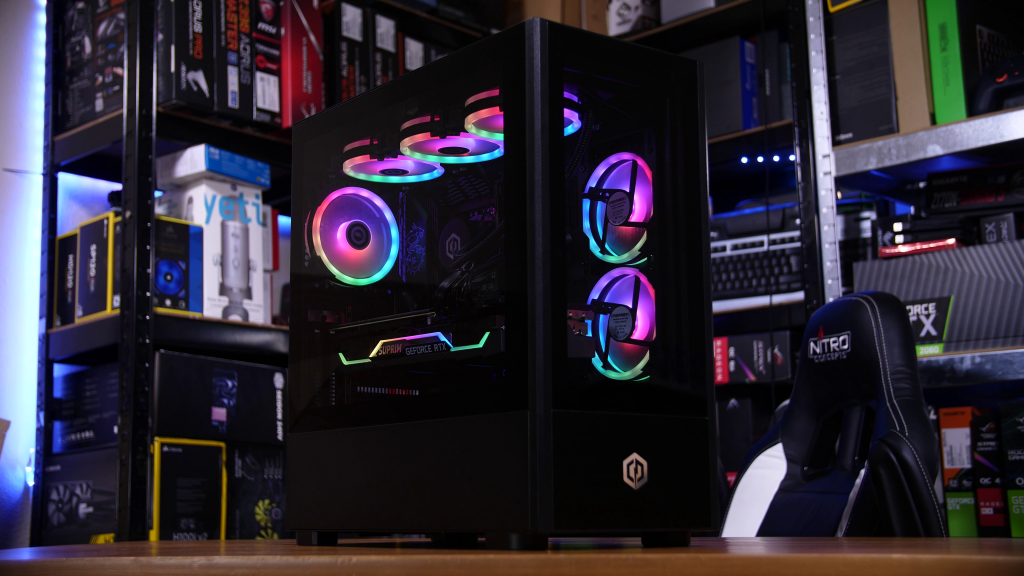
So, the Cyberpower Infinity X119 GT, a £2899 as-spec’d system that offers impressive performance, but not for the price. Cyberpower themselves will sell you an almost identical system with a Ryzen 9 5900X for £2734.80, not far off £200 cheaper, and for more performance.
Specs
Lets start with the spec list:
- Intel i9-11900K
- MSI Z590 Gaming Carbon WiFi
- 16GB 3200MHz DDR4
- MSI RTX 3080 Suprem X
- 500GB Samsung 980 PRO
- 2TB Seagate BarraCuda
- Corsair TX750M
- Cooler Master Masterliquid Lite 360
- 6x ARGB Fans
- Lian Li PC-008
The spec is customisable on their site. The first thing I’d change is the RAM. 16GB in a system of this calibre doesn’t make sense, so 32GB would be my recommendation. If you keep it at 3200MHz or below, you will retain your CPU warranty as running over 3200MHz voids it. I would also change around the storage config. A 500GB M.2 is ludicrously small for this type of machine, and 2TB of spinning rust doesn’t fit either. For just £50 more (when you remove the 980 PRO and the HDD) you can get 2 1TB Gen 3 NVMe SSDs which would be much more fitting.
Build Quality
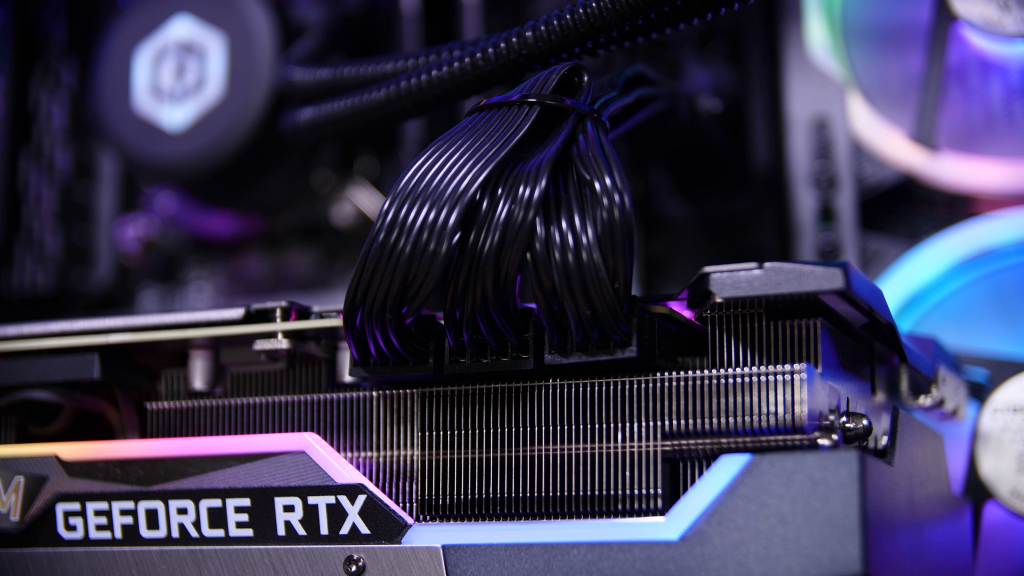
Cyberpower have done well here. The system is well built, and painstakingly cable managed. The monstrous 3 8 pin PCIe power connectors the GPU needs are all bundled nicely, and definitely looks clean inside. My only note would be that in my testing the CPU running the new ‘Adaptive Boost Technology’ peaked at over 310W of package power draw, and even at stock it’s peak TDP on boost is 250W, well exceeding the 235W a single 8 pin EPS power connector is rated for. Cyberpower only used 1 of the 2 8 pin EPS CPU power connectors here, which I would very much like to see upgraded to both for customer builds. The wires were hot to the touch with just one, especially under heavy loads.
Setup – BIOS
The BIOS settings all came pre-configured correctly. XMP enabled, boot drive priority correct, and even came with the power level (PL1 & PL2) profiles increase to a maximum of 4KW – a fair hike from the 250W standard!
I did update the BIOS multiple times during my testing, including a newer version of the BIOS that enabled ABT, and microcode updates that changed the performance characteristics and power draw a fair bit.
Performance
You can check out the performance of the i9 in it’s own review here, but as you might expect with a fast 8 core CPU and an RTX 3080, it’s pretty good. If all you care about is gaming, this will do you well as playing most games at 1440p was a breeze. The CPU is definitely not the one I’d choose is gaming is all you are interested in, as the i7 is the same 8 core chip but with slightly less boost options, although runs remarkably similar in games.
Thermals were much more a concern – the included 360mm AIO did mostly keep the chip under control, but I think the laws of physics were the most constraining thing here – trying to wick away so much heat from such a small space is really very difficult without sub-ambient cooling. The peak the CPU saw was 101°c, although with ABT disabled (but the PL1 & PL2 profiles increased as came from Cyberpower) it sat more around the 95°c range instead.
Noise was louder than I would have liked too – I’m not sure if the Cyberpower fans and hub played the bigger role over the case which has a rear side entry only intake setup. It wasn’t too distracting – nothing you’d hear over a game through headphones, but for quiet music or video playback with speakers it might be more noticeable.
Conclusions
The system itself, the build quality, setup, usage, is hard to fault. There are a few little gripes, but nothing major. The components however, specifically the CPU, make the system hard to recommend. Personally, I would prefer the i7 or even i5 11600K instead, or a Ryzen 5900X if the budget remained the same.
The system still deserves a bronze award, and if you option it down to the 11700K could easily justify Silver.


